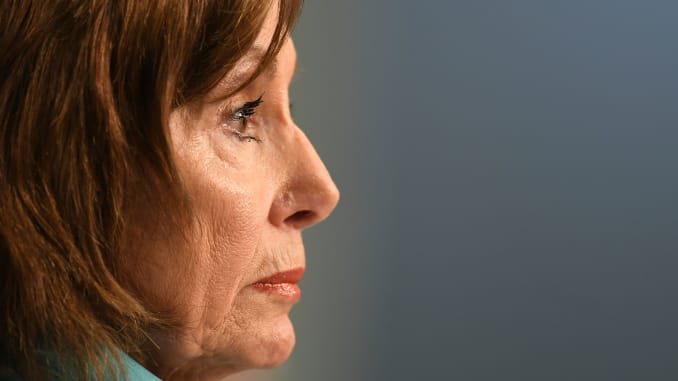US defense secretary warns European allies that Huawei 5G involvement puts alliances at risk

A few minutes every morning is all you need.
Stay up to date on the world's Headlines and Human Stories. It's fun, it's factual, it's fluff-free.
Speaking at the Munich Security Conference on February 15, United States Secretary of Defense Mark Esper told European allies that building their 5G networks with Chinese technology firm Huawei threatens their alliances with America.
Esper also warned that future intelligence cooperation is at risk if European countries grant Huawei access to their 5G networks. If that were to come to pass, Esper said, the US couldn’t be sure that their communication infrastructure is secure. The Guardian reports that while at the conference, the defense secretary spoke of how he believes Huawei poses a threat to western countries.
The technology company is “China’s poster child for its nefarious industrial strategy", which is a plan “fueled by theft and coercion and the exploitation of free-market, private companies and universities", Esper said.
Regarding the impact that allowing Huawei to build European 5G networks would have on the international intelligence community, the defense secretary added, “reliance on Chinese 5G vendors could render our partners’ critical systems vulnerable to disruption, manipulation and espionage. It could also jeopardize our intelligence and communication-sharing capabilities, and by extension, it could jeopardize our alliances."
Although Esper criticized the Chinese technology company, as well as European allies who in his view have focused too much on short term economic gain rather than long term security, he acknowledged that the US had so far failed to produce an alternative to Huawei. According to the defense secretary, the US plans to rectify this soon.
Esper said that Washington is keen to work with European allies to develop a US-based technology company that could rival Huawei’s 5G aspirations. Esper added that the Trump administration is working with technology companies to support development that would spawn other possibilities.
“We are encouraging allied and US tech companies to develop alternative 5G solutions and we are working alongside them to test these technologies at our military bases as we speak," he said. For Esper, the benefit of working with a US company instead of Huawei is that “our own secure 5G networks will outweigh any perceived gains from partnering with heavily subsidized Chinese providers that answer to party leadership."

Alongside Esper, Lindsey Graham, the US Senator from South Carolina, also warned European allies of working with the Chinese company.
Senator Graham took particular issue with the UK, as the country recently announced its decision to let Huawei build parts of its 5G network.
The senator said that even though “politics back home is about as screwed up as I have ever seen it", both Republicans and Democrats agree “that if you go down the Huawei road you are going to burn a lot of bridges."
United States Speaker of the House Nancy Pelosi, who also appeared at the Munich Security Conference, confirmed Senator Graham’s assessment of the consensus between Republicans and Democrats about the Chinese firm.
Over the weekend Pelosi told US allies “don’t go near Huawei,” adding that working with China to build 5G infrastructure is “choosing autocracy over democracy."

Mike Pompeo, the United States Secretary of State, also weighed in on the debate. Talking about the Chinese government rather than Huawei in particular, Pompeo said the Chinese Communist Party “represented an enormous risk to the idea of the west."
He added, “Europeans care deeply about privacy. We cannot allow information to travel across networks if we do not have confidence that it will not be hijacked by the Chinese Communist Party. It is just unacceptable and we all know that."
Pompeo, like Speaker Pelosi and Senator Graham, cautioned US allies not to involve Huawei in the construction of their 5G networks. The secretary of state had previously said that “we won’t be able to share information" with nations that use Huawei technology.
UK Foreign Secretary Dominic Raab disagreed with the secretary of state’s assessment. Raab claimed that the UK’s decision to involve Huawei would not affect the UK’s intelligence-sharing relationship with the US and other allies.
Sir Andrew Parker, the head of the UK’s MI5, said he thinks it unlikely that Britain’s relationship with the US would suffer because of its involvement with Huawei.
Elsewhere in Europe, deliberations about working with Huawei continue. The German parliament will continue to debate whether to ban the firm from its 5G network.
However, according to the New York Times, Chancellor Angela Merkel opposes shutting the company out. Likewise, France recently decided it will allow Huawei to bid on contracts to supply equipment for its 5G rollout.
One US ally that has so far followed the American suit on Huawei is Australia. Reports suggest that the country is prepared to ban the firm from its 5G network.
Following Britain’s decision to work with the Chinese company, the BBC reports that Australian MPs canceled a planned trip to the UK amid heightening tensions over Huawei’s role in building Britain’s 5G network.
[article_ad]




Comments ()